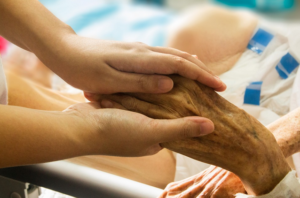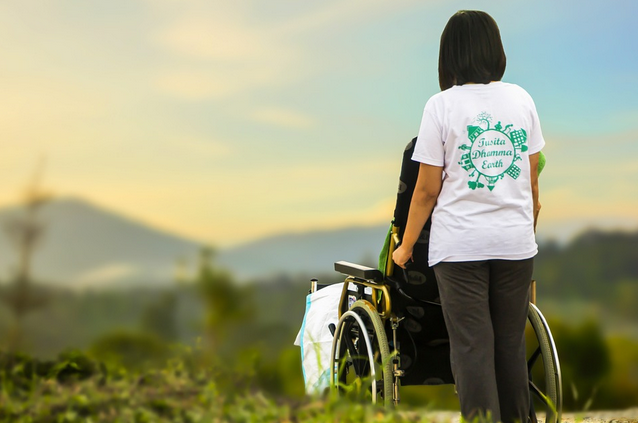Welcome to our blog, where we explore the world of nursing and dive into the responsibilities of a 24-hour care nurse. These dedicated healthcare professionals are essential in providing round-the-clock support and assistance to patients who require continuous medical attention. From health monitoring to medication management, their duties are varied and vital in ensuring the well-being of those under their care. If you are still not sure about hiring a 24h care nurse, below are some responsibilities of a 24-hour care nurse that will surely help you make up your mind.
Health Monitoring

One of the primary responsibilities of a 24-hour care nurse is to monitor their patients’ health closely. This involves regularly checking vital signs such as blood pressure, heart rate, and temperature. By closely monitoring these indicators, nurses can quickly identify any changes or abnormalities that may require immediate attention. In addition to monitoring vital signs, 24-hour care nurses assess overall physical and mental well-being. They observe for symptoms such as pain, discomfort, or confusion which could indicate underlying health issues. Nurses can intervene early and prevent potential complications from worsening by paying careful attention to these subtle cues. Furthermore, a crucial aspect of health monitoring is ensuring accurate documentation of all observations and findings.
Medication Management
 The crucial responsibility of a 24-hour care nurse is medication management. Ensuring patients receive their prescribed medications accurately and on time is vital for maintaining their health and well-being. The nurse must comprehensively understand each patient’s medication regimen, including dosage instructions, potential side effects, and any necessary precautions. This knowledge allows them to administer the medications safely and educate the patient or family members about proper usage. In addition to administering medications, the nurse plays a critical role in monitoring patients for any adverse reactions or complications related to their medication. They closely observe for signs of allergic reactions or interactions with other drugs.
The crucial responsibility of a 24-hour care nurse is medication management. Ensuring patients receive their prescribed medications accurately and on time is vital for maintaining their health and well-being. The nurse must comprehensively understand each patient’s medication regimen, including dosage instructions, potential side effects, and any necessary precautions. This knowledge allows them to administer the medications safely and educate the patient or family members about proper usage. In addition to administering medications, the nurse plays a critical role in monitoring patients for any adverse reactions or complications related to their medication. They closely observe for signs of allergic reactions or interactions with other drugs.
Teaching Patients and Families
Education plays a crucial role in the responsibilities of a 24-hour care nurse. One of the key aspects is teaching patients and their families about various medical conditions, treatments, and self-care techniques. By providing comprehensive education, nurses empower patients and families to participate in their healthcare journey actively. When teaching patients, nurses must use clear language that is easy to understand. They should explain medical terms, ensuring patients grasp important information regarding their diagnosis and treatment options. Nurses may also demonstrate proper techniques for medication administration or wound care.
Home Safety Management
 Home Safety management is a crucial responsibility of a 24-Hour Care Nurse. Ensuring the patient’s home environment is safe and free from any potential hazards is essential for their well-being. One aspect of Home Safety Management involves conducting regular home assessments to identify any risks or dangers. This includes checking for loose rugs or carpeting, ensuring proper lighting in all areas, and securing cords and wires to prevent tripping hazards. Another important task is properly organizing medications and keeping them out of reach of children or pets. Educating patients and their families about medication safety is vital, such as reading labels carefully and understanding the correct dosage.
Home Safety management is a crucial responsibility of a 24-Hour Care Nurse. Ensuring the patient’s home environment is safe and free from any potential hazards is essential for their well-being. One aspect of Home Safety Management involves conducting regular home assessments to identify any risks or dangers. This includes checking for loose rugs or carpeting, ensuring proper lighting in all areas, and securing cords and wires to prevent tripping hazards. Another important task is properly organizing medications and keeping them out of reach of children or pets. Educating patients and their families about medication safety is vital, such as reading labels carefully and understanding the correct dosage.
A 24-hour care nurse is indispensable in providing comprehensive healthcare services in the comfort of patients’ homes. Through diligent health monitoring, educating patients/families on self-care practices, and managing medications effectively while also ensuring home safety measures are implemented – they contribute significantly towards improving patient outcomes. Their dedication goes beyond mere caregiving; it encompasses empathy, compassion, and patience – qualities essential for building trusting relationships with patients and their families. We hope that you have found this blog post helpful.



 ting effect which helps in boosting the activities of the digestion, secretion, excretion and circulatory system. This property is also useful in treating ailments associated with overactive metabolic processes, improper circulation, and obstructed secretions.
ting effect which helps in boosting the activities of the digestion, secretion, excretion and circulatory system. This property is also useful in treating ailments associated with overactive metabolic processes, improper circulation, and obstructed secretions. vessels surrounding the nerves. Camphor oil helps in treating this condition by making the blood vessels to contract. This, in turn, helps in reducing pressure on the nerves. The sedative and soothing properties of this versatile oil are also helpful in making your blood vessels to contract.
vessels surrounding the nerves. Camphor oil helps in treating this condition by making the blood vessels to contract. This, in turn, helps in reducing pressure on the nerves. The sedative and soothing properties of this versatile oil are also helpful in making your blood vessels to contract.